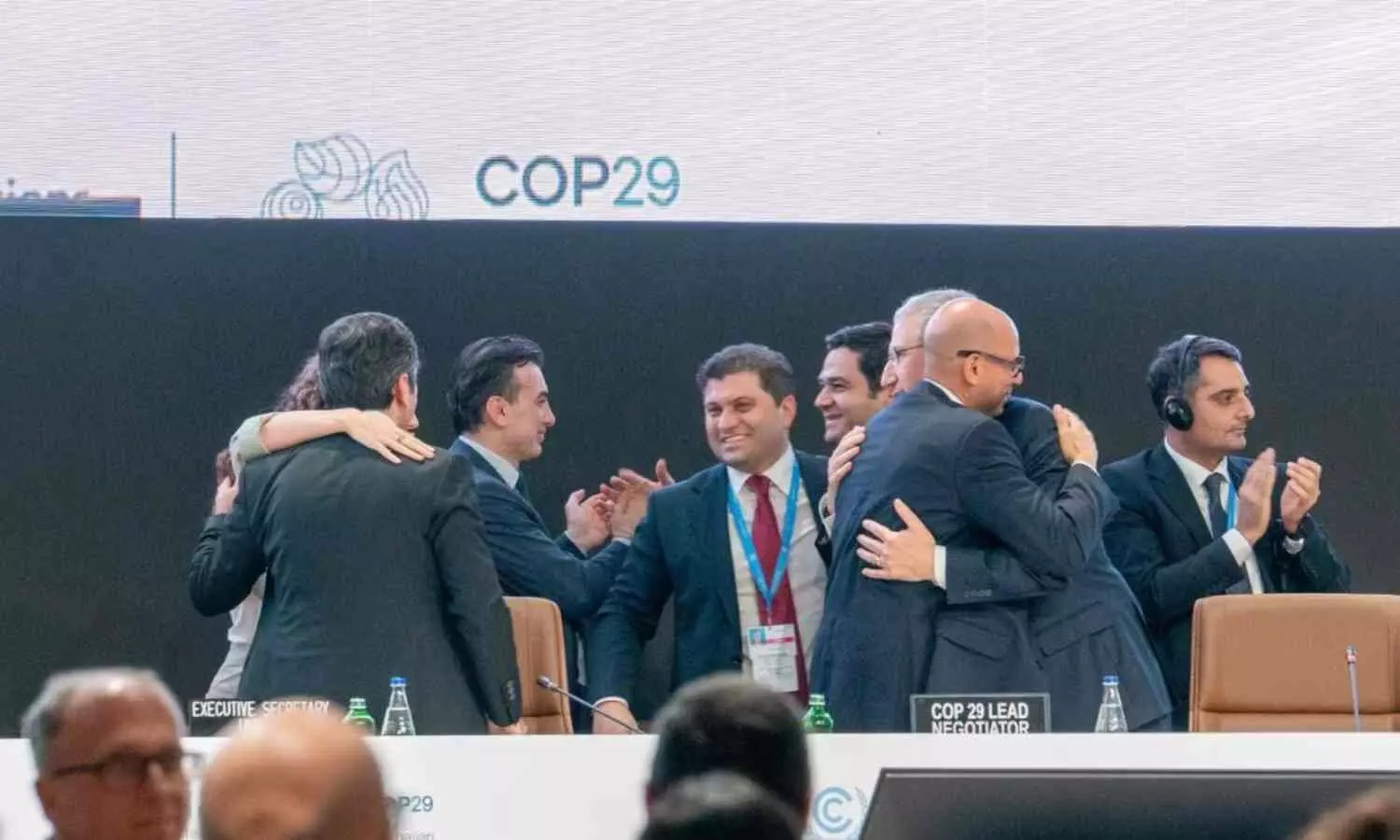COP29 Climate Finance Clock to $300 Bn a Year; India Says 'Optical Illusion'
Followed by 30 hours of overtime deliberations, the UN Climate Summit (COP29) couldn’t reach a satisfactory consensus.
COP29 Climate Finance Clock to $300 Bn a Year; India Says 'Optical Illusion'

Even after 30 hours of overtime deliberations, the UN Climate Summit (COP29) didn’t end on the intended note, thereby falling short of meeting Global South’s urgent demands. The negotiations were followed by walkouts by least developing countries and small island states and prolonged stalemate.
The New Collective Quantified Goal (NCQG) has set a target at just $300 billion per year in climate finance instead of $1.3 trillion to developing countries by 2035. The funds may come from governments and private sources, which includes multilateral banks.
Manjeev Puri, former Indian ambassador to the European Union (EU) and a Distinguished Fellow at TERI said, “Deeply disappointing that the world couldn’t agree on a goal reflecting at least a modicum of ambition for financing action in developing countries on climate change, the biggest challenge facing humankind. India, rightly, underscored this inadequacy and the process of adoption.”
What were the reactions of developing countries?
India immediately showed its discontentment towards the session, by calling the $300 billion per year contributions as “optical illusion”.
Evans Njewa from Malawi who represented the 45-nation group of LDCs said, “Once again, the countries which are most responsible for the climate crisis have failed us. This is not just a failure; it is a betrayal. The bulldozed NCQG is a glaring symbol of this failure."
He criticised the developed nations for not taking the issue seriously, which is directly affecting the developing countries.
Delegates from Cuba, Nigeria and Bolivia also expressed their discontentment by holding the developed countries responsible for failing to fulfil their obligations towards climate finance.
What is the Impact?
At a time when countries are mandated to furnish a national climate action target by February next year, insufficient funding could have a severe impact on the global south nations.
Notably, Global south nations hoped for a new climate finance target, however, even after 15 years of developed countries’s unfilled commitment of $100 billion, developing countries said they felt discontented again. The developing nations which include G77+ China, wanted an yearly release of $500 billion from the earlier goal of $1.3 trillion via the developed nations.
Led by walkouts by Least Developed Countries (LDCs) and Alliance of Small Island States (AOSIS), COP 29 Presidency was unable to reach a satisfactory consensus. By 2:30 AM in Baku, COP29 president Babayev Mukhtar steered the adoption of NCQG, to which India objected.
Ani Dasgupta, President and CEO, World Resources Institute said, “The poorest and most vulnerable communities are rightfully disappointed, but the deal gets us off the starting block. The $300 billion goal is not enough, but is an important down payment towards a safer future. The hard work now begins to scale up all sources of finance to deliver the $1.3 trillion developing countries need by 2035.”

